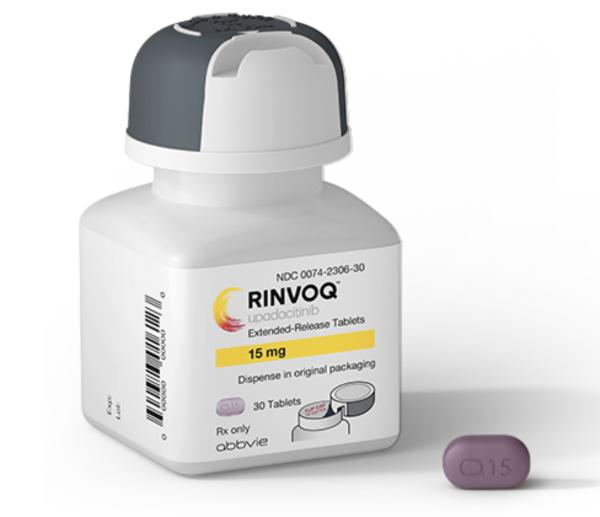Upadacitinib and Alcohol/Food Interactions
There are 2 alcohol/food/lifestyle interactions with upadacitinib.
Upadacitinib Food
Major Food Interaction
Consumption of grapefruit, grapefruit juice, and supplements that contain grapefruit should be avoided during treatment with upadacitinib as they may increase the blood levels of upadacitinib, which may increase the risk and/or severity of side effects such as low blood cell counts, anemia, serious infections, and elevated blood lipid levels. Contact your doctor if you develop symptoms such as paleness, fatigue, dizziness, fainting, fever, chills, diarrhea, sore throat, muscle aches, shortness of breath, blood in phlegm, weight loss, red or inflamed skin, body sores, or pain or burning during urination. Smoking during treatment with upadacitinib may increase your risk of serious cardiovascular events and of developing malignancies. Tell your doctor if you are a current or past smoker. Talk to your doctor if you have any questions or concerns. Get emergency help right away if you develop any symptoms of a heart attack or stroke during treatment with upadacitinib, including severe tightness, pain, pressure, or heaviness in your chest, neck, or jaw; weakness in one side of your body; slurred speech; shortness of breath or feeling lightheaded. It is important to tell your doctor about all other medications you use, including vitamins and herbs. Do not stop using any medications without first talking to your doctor.
Upadacitinib High Cholesterol (Hyperlipoproteinemia, Hypertriglyceridemia, Sitosterolemia)
Moderate Potential Hazard, Moderate plausibility
upadacitinib - hyperlipidemia
Treatment with upadacitinib is associated with increases in lipid parameters, including total cholesterol, low-density lipoprotein (LDL) cholesterol, and high-density lipoprotein (HDL) cholesterol. Care should be exercised when using this agent in patients with hyperlipidemia. It is recommended to monitor patients after initiation of treatment, and thereafter according to the clinical guidelines and to manage patients accordingly.
References
- (2019) "Product Information. Rinvoq (upadacitinib)." AbbVie US LLC
Upadacitinib drug interactions
There are 550 drug interactions with upadacitinib.
Upadacitinib disease interactions
There are 9 disease interactions with upadacitinib which include:
- cardiovascular risk
- malignancy
- thrombosis
- infections
- cytopenias
- gastrointestinal perforation
- hepatic impairment
- hyperlipidemia
- vaccination
More about upadacitinib
- upadacitinib consumer information
- Check interactions
- Compare alternatives
- Reviews (178)
- Latest FDA alerts (1)
- Side effects
- Dosage information
- During pregnancy
- Drug class: antirheumatics
- Breastfeeding
- En español
Related treatment guides
Drug Interaction Classification
| Highly clinically significant. Avoid combinations; the risk of the interaction outweighs the benefit. | |
| Moderately clinically significant. Usually avoid combinations; use it only under special circumstances. | |
| Minimally clinically significant. Minimize risk; assess risk and consider an alternative drug, take steps to circumvent the interaction risk and/or institute a monitoring plan. | |
| No interaction information available. |
Further information
Always consult your healthcare provider to ensure the information displayed on this page applies to your personal circumstances.


